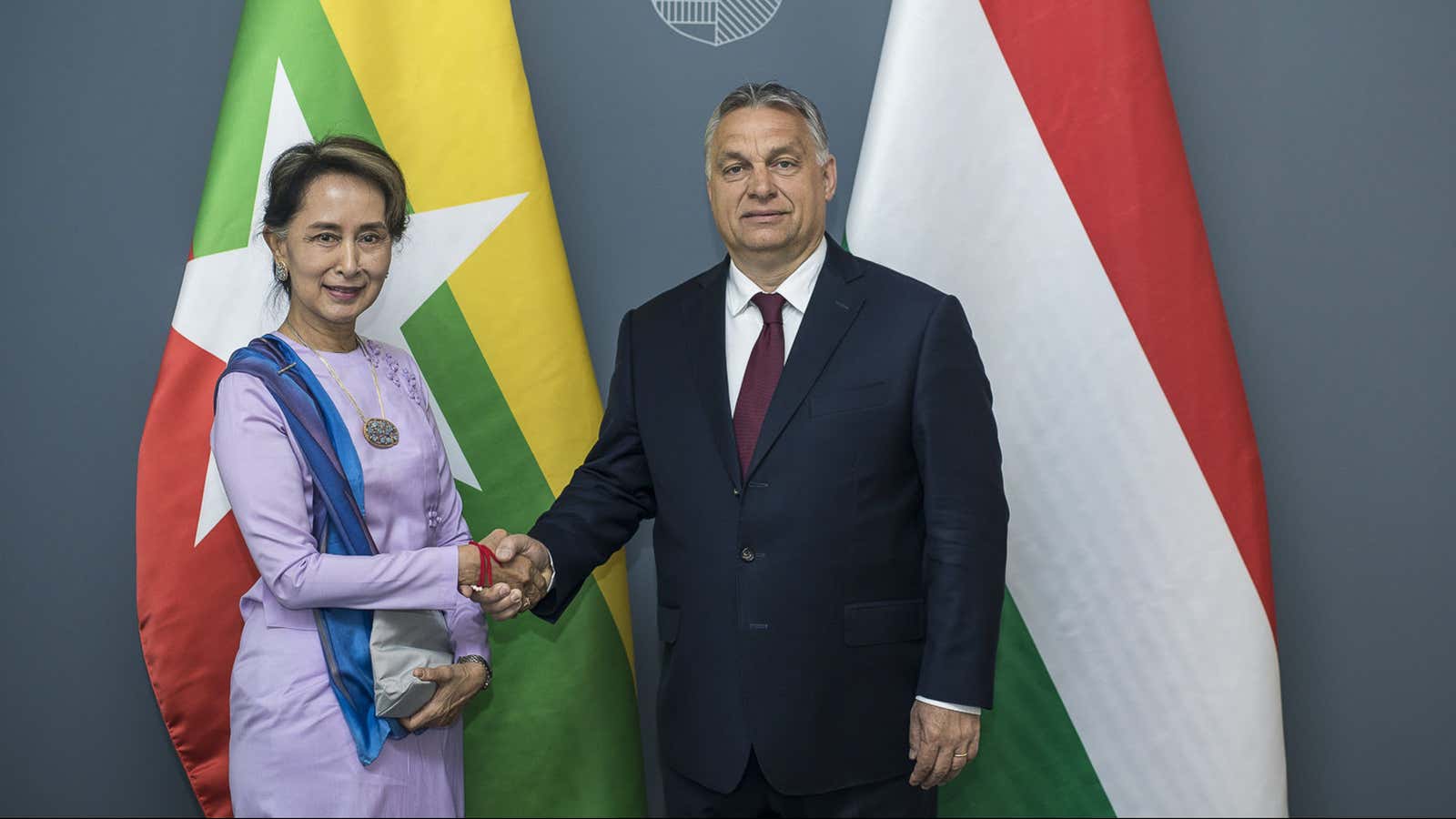Myanmar’s leader Aung San Suu Kyi has long been censured in the West for her refusal to defend the rights of the Rohingya Muslim minority in her country. A recent meeting between her and Hungary’s far-right leader won’t do anything to temper those criticisms.
Suu Kyi and Viktor Orbán met yesterday (June 5) in Budapest, where the two leaders agreed that “coexistence with continuously growing Muslim populations” was a challenge for both countries, according to a statement by the Hungarian government. A statement by the Myanmar government on the meeting did not specifically refer to Muslim immigration, saying only that the two sides discussed “constructive help from Hungary to the national reconciliation efforts by the Myanmar Government and for Rakhine issue,” referring to the western region where the Rohingya population is concentrated.
Orbán, who is currently serving his third term as Hungary’s prime minister, has been vocal about his anti-immigration views. He has fashioned himself as a defender of Christianity in Europe, and referred to the refugees who have poured into the continent via Hungary in recent years as “Muslim invaders.”
Suu Kyi, on the other hand, has never been as explicit in her opinions about Muslims, though she has repeatedly rejected terminology such as “ethnic cleansing” to describe the assault by Myanmar’s military on the Rohingya minority, and has even refused to use the term “Rohingya” to refer to the group, calling it “emotive.” She’s also stopped short of condemning the actions of the military, which has driven hundreds of thousands of Rohingya into neighboring Bangladesh as refugees.
Her stance on the Rohingya has befuddled and angered many of her supporters at home and overseas, who have long looked to the Nobel laureate as an icon of democracy and put their hope in Suu Kyi as the person who could help advance Myanmar’s transition into a democracy following decades of military rule. Some, however, maintain that her options are constrained by a political system where even as the leader of Myanmar, her powers remain circumscribed by the still-powerful military, while openly siding with the country’s Buddhist majority allows her to maintain her popularity. Suu Kyi’s biographer Peter Popham, for example, wrote in 2016 that Suu Kyi feared that speaking up for the Rohingya would open her up to criticism from people who are still suspicious of her Burmese-ness given her long association with the West. A long-time friend of Suu Kyi’s told Reuters last year that she was “a woman of absolutely scrupulous moral standards” who “is not going to make public statements simply because she’s been pressured by journalists.”
However, American diplomat Bill Richardson who has known Suu Kyi for a long time, recently painted a much more damning picture of her, suggesting that the woman who was put under house arrest for fighting for her political beliefs is now a changed person. Speaking to Public Radio International last month, Richardson, who sat on an advisory panel set up by Suu Kyi to help address the Rohingya crisis, described her as someone who “got infatuated with her power” to the extent that “she could abuse human rights to retain that power and retain the support of the military.”
